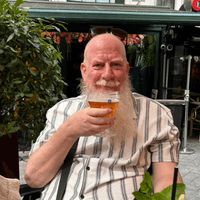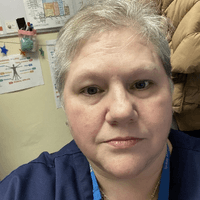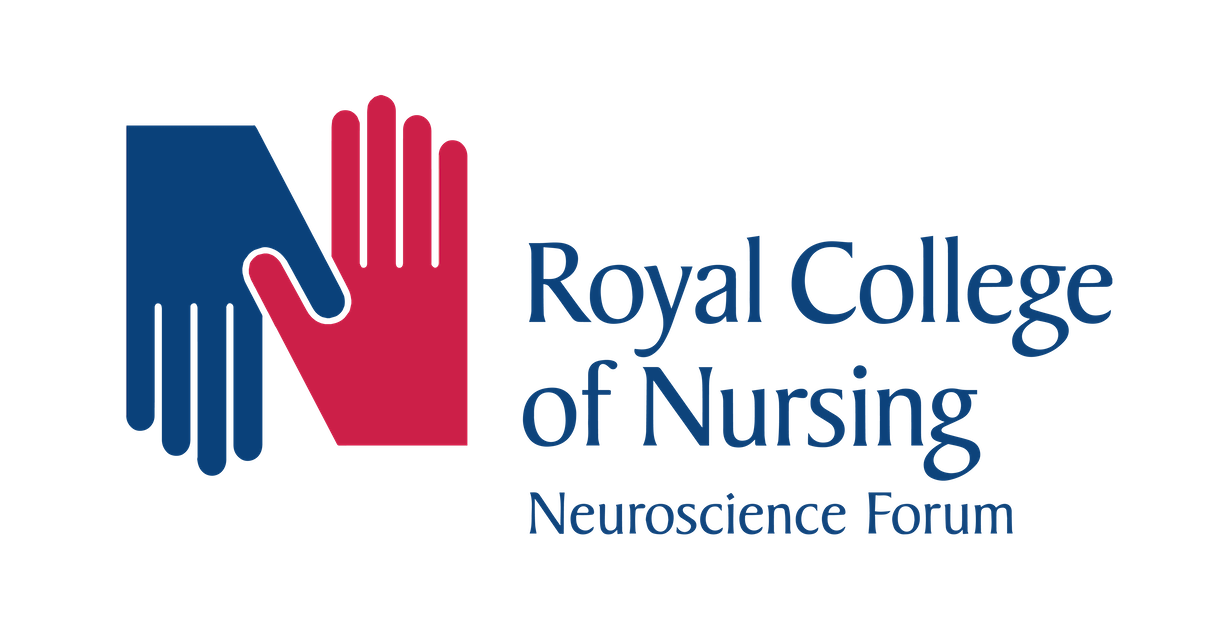Before you watch this webinar
Enhancing your learning experience begins with understanding you better. Collecting data enables us to tailor our educational content specifically for our audience. Discover more about how we handle your information in our Privacy Policy.
Event
From reactive to proactive: Lived experience and the nursing role in multiple sclerosis care
Webinar summary
Summary
The world of MS care has changed significantly over the last 30 years, with growing understanding of the condition and its impact leading to new treatments, new approaches, and greatly improved outcomes.
In this webinar, panellists charted the transition from reactive to proactive management, outlined the current landscape, and looked at how MS impacts the people’s lives.
Here’s our summary of the event, which was produced in partnership with MS-UK and the Royal College (RCN) of Nursing’s Neuroscience Forum.
What is MS?
Sarah Hughes, MS specialist nurse at Torbay and South Devon NHS Foundation Trust and UKMSSNA committee member, explained that MS an autoimmune disease that predominantly affects the central nervous system (CNS).
“The immune system mistakes myelin, which is the fatty covering of the nerves, for something that shouldn't be there, and starts stripping it,” she said. “That leads to scars, orplaques or lesions, called sclerosis.”
Ongoing nerve fibre damage causes “a whole range of symptoms”. These range from the visible, such as tremor and muscle spasms, trouble walking or balancing, speech impairment, and visual disturbances, to the invisible, including chronic future, cognitive impairment, depression and anxiety, and sensory disturbances.
Diagnosis
Diagnosis is made using MRI and clinical features according to the McDonald criteria, which is now in its fifth edition. However, it is not always a straightforward process.
Ryan Jones, helpline and information officer at MS-UK, explained he had experienced a range of symptoms in the two years leading up to his diagnosis that had been “passed off as other things”. It was only with hindsight that he realised these issues, such as numbness in his right arm, had been neurological in origin.
Simon Dockerty, a volunteer at the charity, said his diagnosis came after his “legs gave way” while working on a construction site. It was only after a year of investigations that he found himself “in front of the right person”, who was able to diagnose MS.
“Because of his experience, he was able to see what others perhaps could not,” said Simon. “He gave me a chance to talk, a chance to question, and a chance to choose as we went through the process – but that is not what I see with everybody. Often, people are rushed and confused about what the diagnosis might mean for them.”
Disease-modifying therapies
The first disease modifying treatment (DMT) for relapsing-remitting MS (RRMS), beta interferon, was introduced in the 1990s. Now, there are around 14 options. “We also now have DMTs for secondary progressive and primary progressive MS,” said Sarah.
Traditionally, she explained, treatments were escalated in line with increasing relapse frequency. “Now it is the opposite; we start with the higher efficacy treatments first,” said Sarah, adding that MS care had become “more proactive” in recent years.
“As we learn more and the imaging gets better, we are diagnosing people earlier, meaning we can treat them earlier and prevent disability happening over time.” However, she went on, not all patients are eligible for DMTs, and some people choose not to take them.
Being part of treatment decisions is very important for people living with MS, said Ryan, who is now on his third DMT. “I find myself feeling newly diagnosed all over again when I have to make that decision,” he said, adding that there is now a“plethora of information” designed to help. He highlighted the MS Decision and the Clinic Speak tools as being particularly useful to him.
Invisible symptoms
Ruth Stross, head of nursing for the Neurology Academy, RCN neuroscience forum committee member, and MS Together trustee, spoke about the quality of life (QoL) impact of invisible symptoms on people’s lives.
“Invisible symptoms often cause greater distress than visible ones,” she said, adding that fatigue is often described as the most debilitating symptom of all.
Ryan said that “nearly all” his “symptoms are, and have been invisible”. He went on: “I've have accumulated some symptoms, particularly around neuropathy and fatigue, that make it feels like (the MS) has ever so slowly ramped up over time.”
Such symptoms, however, can be challenging to diagnose and to manage, due to their subjectivity and a lack of standardised measuring tools, said Ruth.
Symptom management priorities, she went on, should be educating people on how and when to report symptoms, and creating a “safe communication space”. Teams also need to address potentially stigmatising issues that patients may feel uncomfortable raising. “We are starting to talk about bladder and bowel in clinic, but we do not always talk about sexual dysfunction,” she explained.
Recent advances in symptom management include digital cognitive training programmes, to preserve function, new medications for symptoms such as overactive bladder and spasticity, and the introduction of real-time symptom monitoring and reporting apps. All these interventions, Ruth explained, can help people to manage the invisible symptoms of MS.
Holistic management
Modern MS care comprises a holistic approach that includes psychosocial support. Ruth highlighted, for example, that cognitive behavioural therapy (CBT) and mindfulness could help reduce depression and anxiety, and that tailored exercise programmes could improve mobility and reduce fatigue intensity.
Reflecting on his own experience, Ryan spoke about the benefits of CBT, saying it had made a “lasting difference” to him. The reframing and coping strategies it provided him have been “one of the most powerful tools” in enabling him to “live alongside” his MS as it changes, he said.
There is also growing recognition of the crucial importance of lifestyle interventions and brain health. Ruth explained that building brain resilience through mental stimulation can help to prevent cognitive decline, and that regular exercise can improve neuroplasticity. A healthy, Mediterranean diet, she went on, can support neurological health, quality sleep can help with cognitive function and fatigue, and smoking cessation improves outcomes overall.
Said Ryan: “The fact that there is so much evidence behind those six bullet points gave mesome achievable goals to work towards. That made a real big difference in terms of feeling as in control as I possibly could be of the condition.”
Social connection and support networks are also vitally important, as they can improve QoL as well as treatment adherence, said Ruth.
Simon agreed, saying that “community makes a big difference to us all”, and used the benefits he had gleaned from attending MS-specific gym sessions as an example. “The people in there understood what I was going through,” he said. “They might be using a wheelchair or a walker, or even running marathons, but (meeting) the wide range of different people made a huge difference to me.”
Ultimately, Simon explained, it was about having a health team that “get it”.
“I've had a series of significant relapses over the last few years, and every year becomes a new thing to face,” he said. “I am now a permanent wheelchair user, which I wasn’t last year. Last year I was using crutches, which I wasn't the year before. When I was first diagnosed, I was walking 20 plus miles every day. Every time (something changes), it is like a new diagnosis to cope with, face, and address. You suddenly find your life physically limited, andyou need people on your team who get it: people who really understand that it's an ever changing condition.”
RCN neurosciences forum
During the event, Jonathan Beebee, professional lead for neuroscience and learning disability nursing at the RCN provided an update on the college’s neuroscience nursing forum.
The group, which currently has more than 3,000 members, is currently developing competency frameworks for headache nursing practice, as well as evaluating the existing stroke care framework.
“Central to our ambition,” said Jonathan , “is creating a community amongst neuroscience nurses in all areas of practice. We feel that neuroscience nursing isn't recognised enough, so we are trying to demonstrate that we are all connected and that we work together.”
Aims:
- To enhance the knowledge and expertise of nurses in multiple sclerosis (MS) care.
- to foster an understanding of the transformative shift in MS management—from a reactive to a proactive approach, and from a paternalistic model to collaborative and patient-empowered care
- To understand the personal experience of living with MS
Objectives:
Develop a foundational understanding of the evolution of MS care, from past practices to present advancements and future innovations.
Recognize the significance of truly listening to patient experiences and gaining insight into life with MS.
Gain a comprehensive perspective on key priorities in treatment, including disease-modifying therapies, symptom and relapse management, and holistic multi-disciplinary support available for people with MS
Presentation slides
Chair
 Ruth Stross
Ruth StrossDirector of services, MS Trust
Speakers
 Jonathan Beebee
Jonathan BeebeeProfessional lead for neuroscience and learning disability nursing, Royal College of Nursing
 Ryan Jones
Ryan JonesHelpline and information officer, MS-UK
 Simon Dockerty
Simon DockertyVolunteer, MS-UK
 Sarah Hughes
Sarah HughesMS specialist nurse, Torbay and South Devon NHS Foundation Trust
Encouraging excellence, developing leaders, inspiring change
MS Academy was established in 2016 and in that time has accomplished a huge amount with exciting feedback demonstrating delegates feel inspired and energised along their personal and service development journeys. The various different levels of specialist MS training we offer are dedicated to case-based learning and practical application of cutting edge research.

